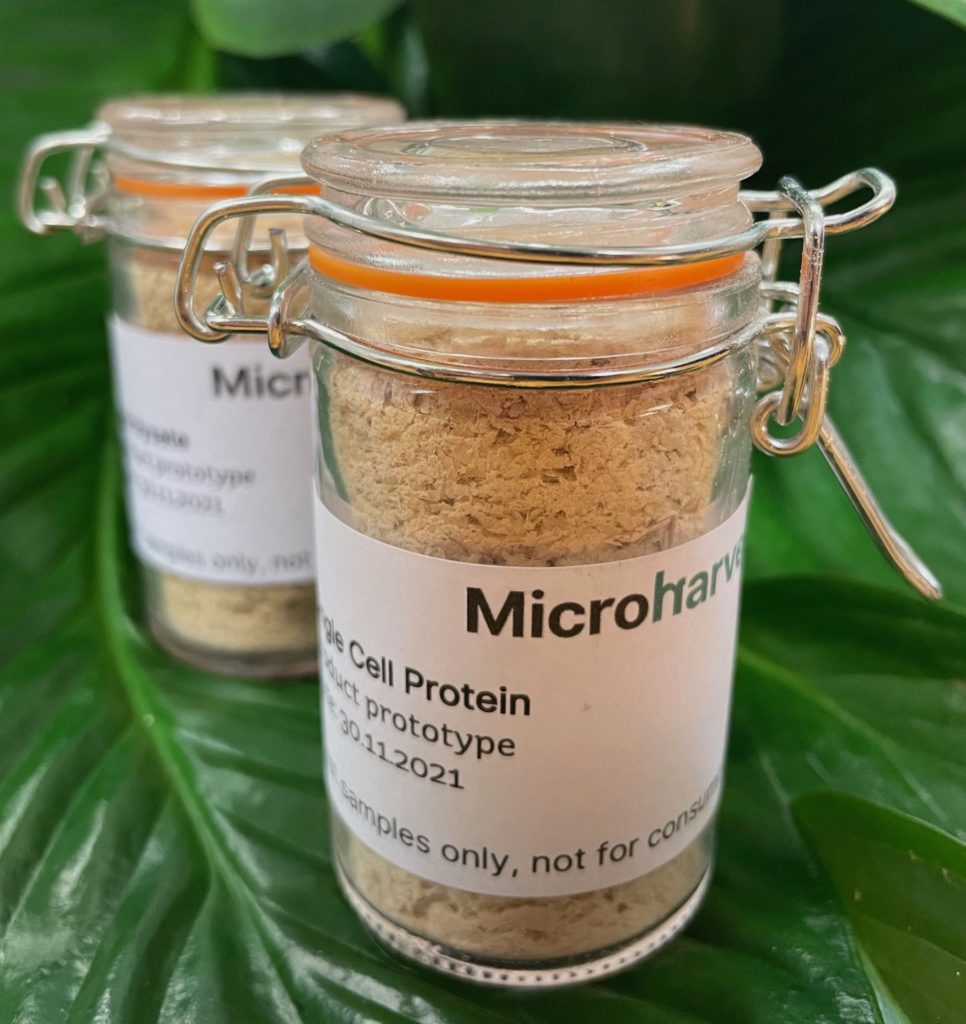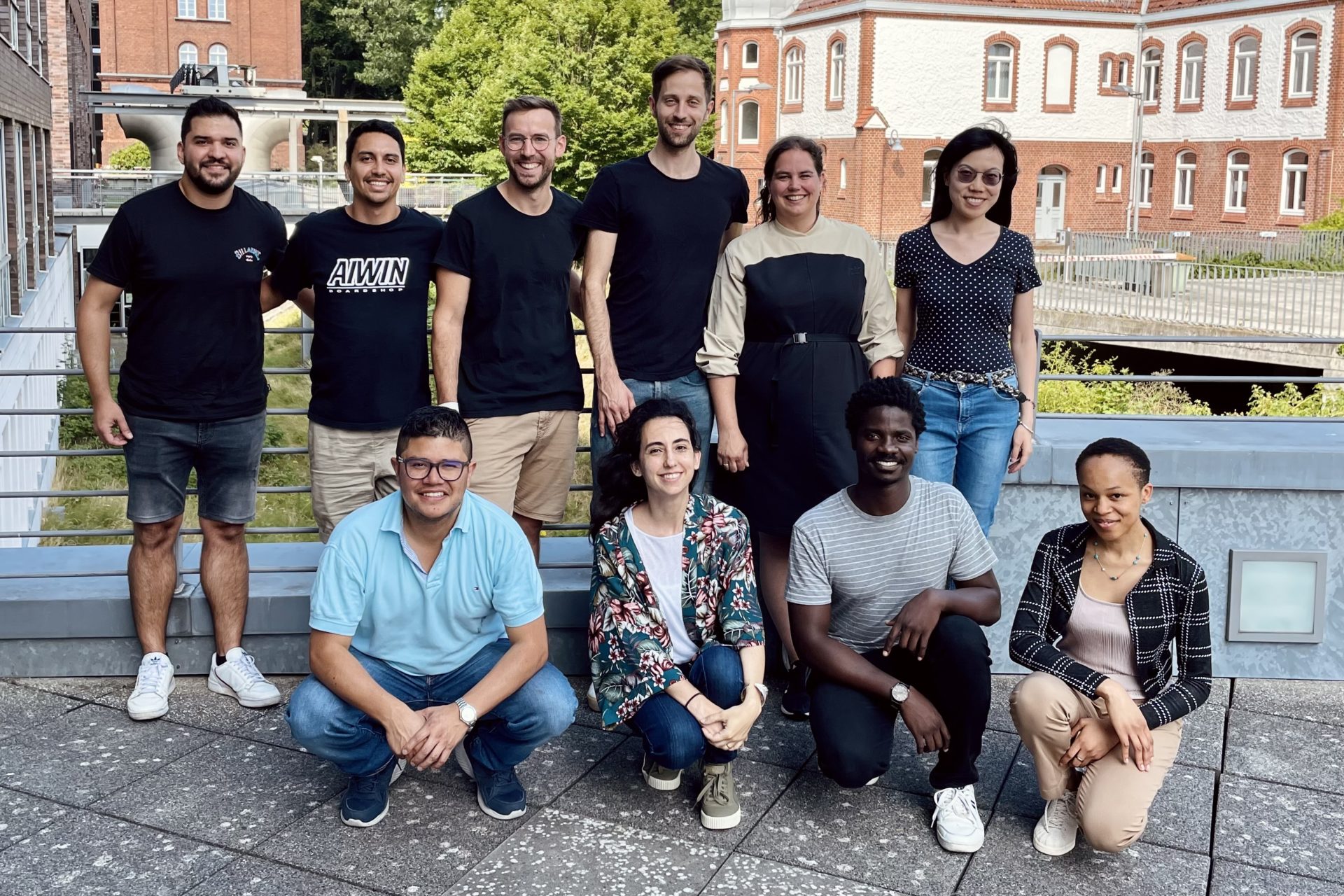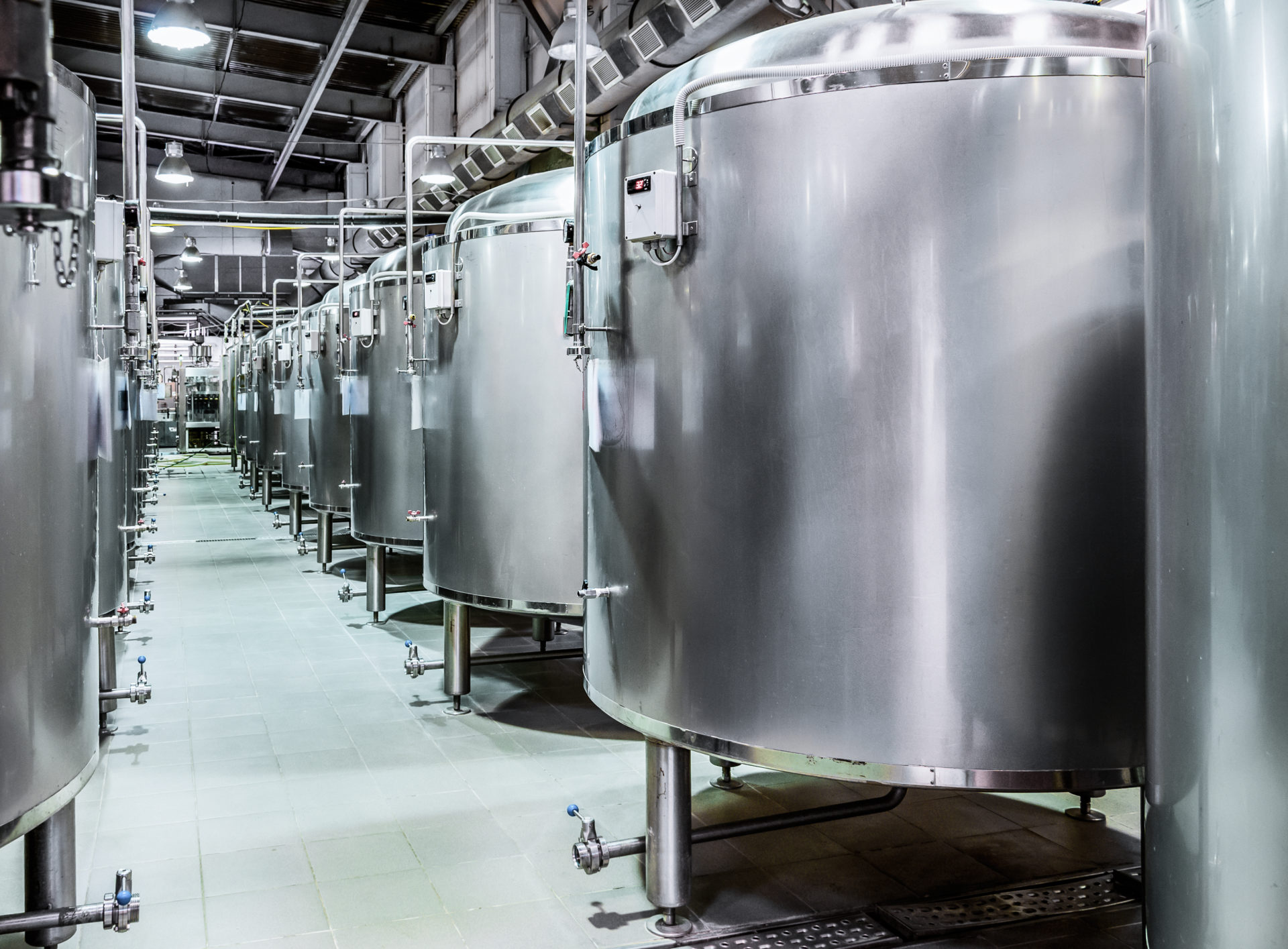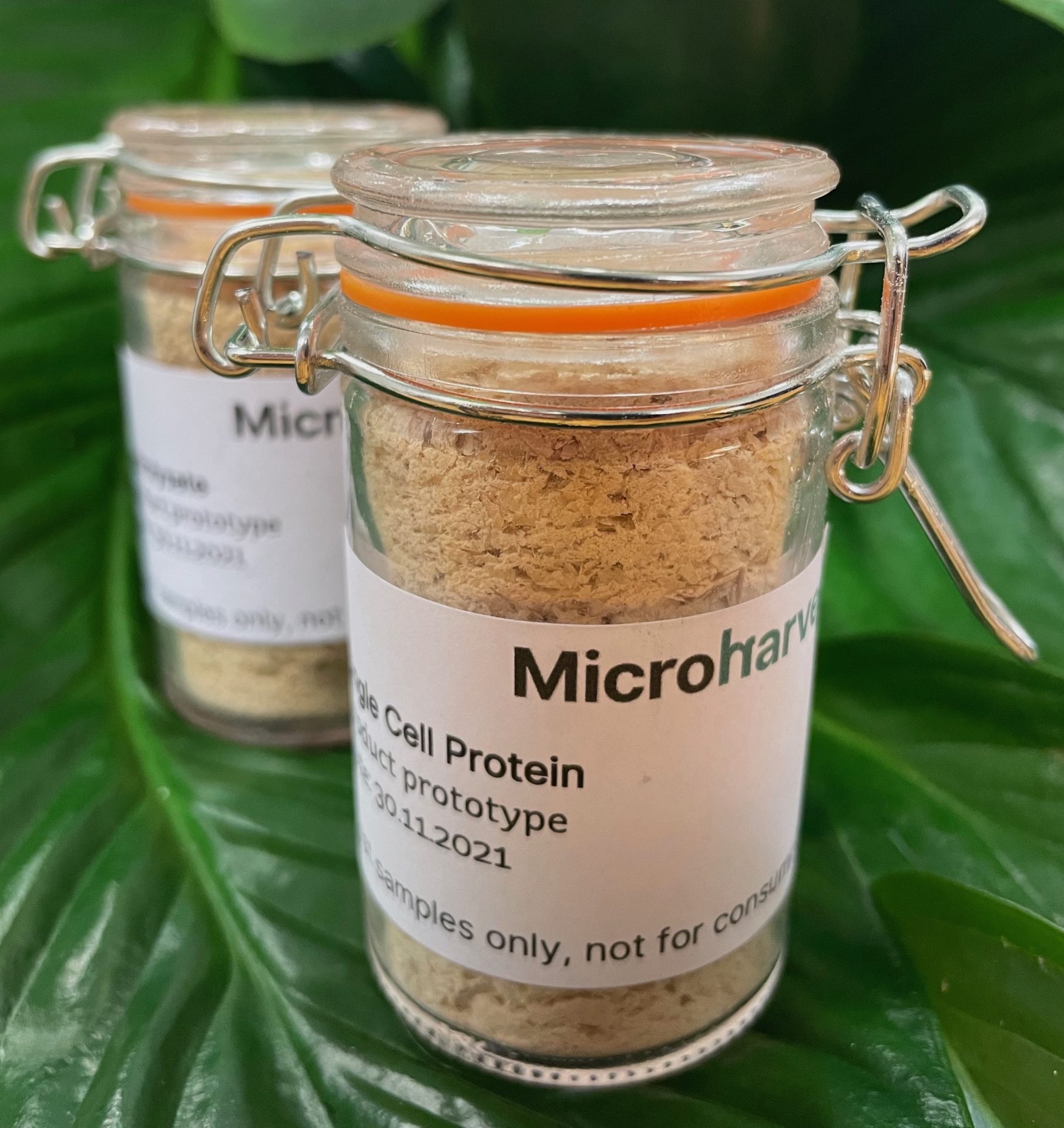MicroHarvest
Nutrients that feed the world
A resilient food system, using the power of microorganisms
Entrepreneurs
Kate Bekers, Luisa Cruz, Jonathan Roberz
Founded
2021
Partnered
2022
HQ
Hamburg, Germany
Category
Innovating Agriculture Transformation Processes
Smaller, better, faster.
Global demand for protein is in the range of hundreds of million tons per year. This value is growing beyond what our current production systems can deliver. MicroHarvest is leveraging nature’s most efficient bacteria to make better, healthier and tastier protein. With their novel production system for single cell protein, they address the pressing need for sustainable alternatives to meet the growing global protein demand. The company directly tackles the growing demand for alternative protein ingredients for human food, a $14Bn market.
MicroHarvest’s proprietary technology enables the production of protein using bacteria at a speed and efficiency that greatly exceeds existing approaches. MicroHarvest’s production speed is unparalleled: raw materials can be turned into final protein products within a single day (compared to months for plant-based or animal protein).

Being able to ramp up production quickly is key to becoming a relevant player in the B2B ingredients market. It enables decentralized production of sustainable, nutritious, high-quality and safe protein. Their ‘elegantly simple’ fermentation technology approach can be scaled in a decentralized way to produce single-cell proteins for different use cases varying from pet and human food to animal feed.
MicroHarvest is led by highly complementary founders. CEO Kate Bekers combines both biotech expertise and business development acumen, CTO Luisa Cruz spent her entire academic and professional career in bioprocessing and COO Jonathan Roberz has been successful as an entrepreneur since graduating high school.
At scale, MicroHarvest products can become a significant contributor to the urgently needed transition towards sustainable, affordable proteins. In addition, the decentralized production empowers the development towards more food independence and supply chain resilience.
MicroHarvest news
-

Bloomberg Quicktake with Katelijne Bekers, Co-founder &CEO of MicroHarvest
-

MicroHarvest makes Bloomberg awards shortlist
-

Hamburg’s MicroHarvest reaps in €8.5 million to build protein production system
-

The next generation of fermentation technology: Why we invested in Standing Ovation and MicroHarvest
-

MicroHarvest Opens Subsidiary in Portugal
